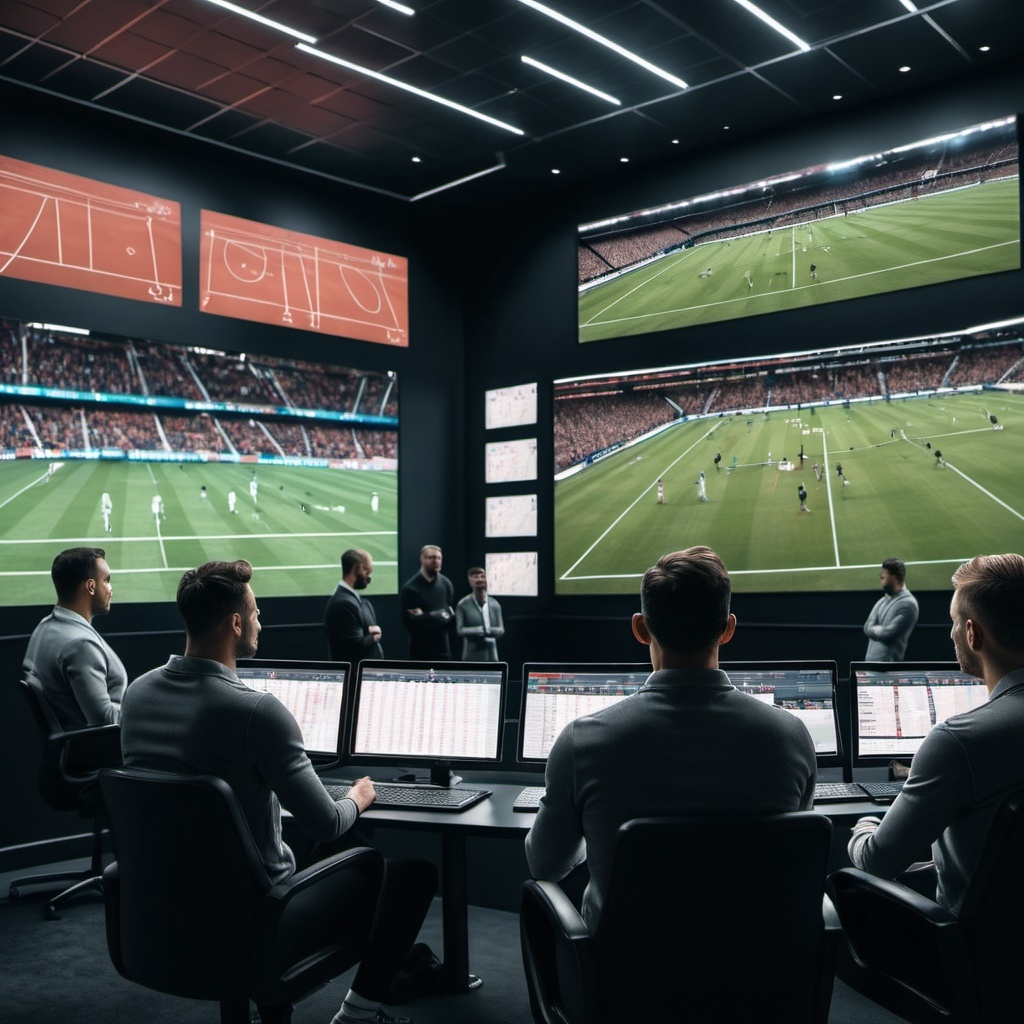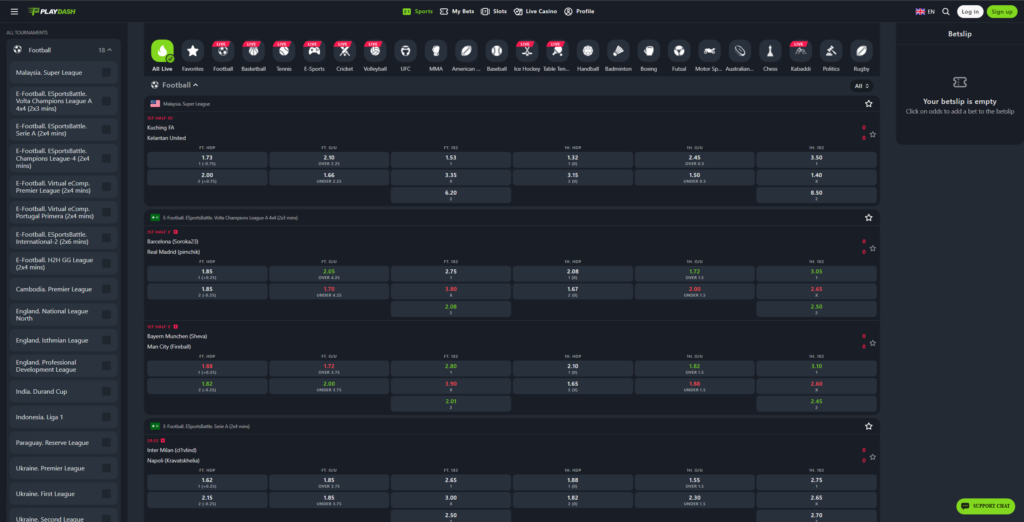Introduction
In the modern world, AI in sports has metamorphosed sports by creating a fresh perspective on games amongst teams, trainers, and analysts. With AI in sports technology, it considered as a disruptive event that can transform the way data is collected to enhance sports analytics insights. Sport AI-driven can also be used to analyse and improve performances to gain competitive advantages against your competitors. With AI-powered sports analytics, the field of athletic performance will be redefined by giving inputs and accuracy at orders of unimaginable performance based on previous gameplay.
Overview of AI in Sports Analytics
An innovation of the myriads employed in machine learning and artificial intelligence is changing sports decades-old sports analytics was over-reliant on manual data collection, as well as subjective interpretations. When you get right down to it, AI replaces intuition (or less bias — whoever prefers the same) with stronger foresight which is essentially more knowledgeable and fact-based by default. It was a revolution in the way we play and watch sports, one of many over time — not merely an ephemeral shift in popular trends.
By utilising the advanced cutting-edge algorithms nowadays have, algorithms, the team or organization can analyze a wide range of metrics received from sensors, cameras, and history databases by utilising AI-driven sports analytics. These AI tools can help you digest a high volume of data in real-time and analyse insights instantly for better team strategies, player performance, and increased fan engagements. In sports analysis, the key factor is to identify the current pattern and trends in data collected that may be time-consumed for humans. Moreover, AI can also provide prediction advice for the team or organization, offering accurate insights from multiple events that may develop so that they can make the best-informed decisions.
Speed And Accuracy: The largest advantage of AI-based sports technology can deal with huge data quickly and accurately. Whether from the perspective of player tracking during a game or by the examination of an opponent’s strategy, we get insight into things powered by AI which wasn’t feasible earlier. It has blended seamlessly into the sports sector that is teams from different parts of sports are using AI to gain a competitive edge.

Case Studies: Success Tales on AI-Driven Sports Analytics’s Predictive Accuracy in Various Sports
Some of the most high-flying case studies in many different sports show how accurate AI-drive data on sports can be. The Golden State Warriors of the NBA are already using AI to analyze player movements and shooting patterns. Inspired by analytics-driven intelligence, the Warriors have completely overhauled their training programs — resulting in fewer injuries and a better performance on-court.
Soccer is getting the AI treatment more and more, as Manchester City has been also employing artificial intelligence to gain an edge. AI is also being used by the team to analyze opposing tactics, make match predictions, and even scout some players. This has simplified the practice mechanisms for analysing team building and on-field skills, as well as making positive assumptions about the involvement of AI in sports.
Take another excellent example with baseball where artificial intelligence had identified the player injuries before they could surface. Whereas through analysis of players movement and workloads, past data can show up tell-tale patterns that point to increased injury risk. It allows teams to take some preventive actions and keeps their key players healthy for the entire season.
Well, these are the exact case studies that prove how correct and efficient AI generated sports predictions work. By using tools provided by AI for an insightful analysis guided by predictive power, teams can ingest significantly larger datasets than previously possible leading. Not only to having more performance-driven approach but also wreaking havoc in the order of play and therefore causing competitors to adapt.
There are plenty of case studies worth which can convey the effectiveness and precision in AI-driven sports analytics, around various Sporting industries. One common example is the Golden State Warriors — an NBA franchise that applied AI-driven technologies for player paths and shooting behaviour analyses. AI-driven insights have also enabled the Warriors to power their PracticeView feature, which has doubled how much data needs analysis in half the time and our fully customizable dashboard allows coaches to make more informed decisions on training programs that will be beneficial for player performance while minimizing injuries.
Manchester City, for example, has even employed powerful algorithms-based analytics to the definitional periphery in soccer. To analyze in-game strategies of their opponents, predict match outcomes and even alert scout potential players the team turns to AI. Doing so, they have been able to make the team selection process at least more hassle-free and recent performances of teams in real world also suggest Such instances do indicate value adds through AI on sports analysis.
Baseball is another interesting example as with the combination of AI they were able to identify when a player will get an injury before it even happens. AI can detect the patterns of injuries through historical data on player movements and exertion. This allows for teams to be monitoring such players, keeping them healthy through the latter part of the year.
These case studies, obviously, prove the reliability and precision of AI enabled sports predictions. The capability of AI to sort through enormous amounts of data and predict with accuracy the outcome has changed how teams play, making them better on average, hence raising the bar.
How Sports Betting is Affected by AI-Driven Analytics
The advances brought in the sports industry Recently AI assistance has prompted an impact on game wagering or focused game investigation, encouraging better strategies to put down bets. In the past, sports betting was based solely on human experience and Mathematics to predict how events would end. There are only a small number of elite forecasted lineups from organisations that can produce these, but with the rise in AI this has drastically changed, and they provide more precise and data-driven insights.
If you are unsure about how AI-powered sports prediction models work, these programs sift through years of stats from both teams using a statistical model that determines the probability of each team encountering in matching conditions once again. Often, these predictions are better in comparison to picks made by human analysts hence offering the players a higher chance of winning. Most importantly, AI-based platforms bring real-time betting insights; that let bettors take justified actions as the game goes on.
In addition to predictions, AI-enabled analytics are crucial for recognizing patterns in betting and identifying potential cases of fraud. With betting data analysis, AI effectiveness is at best, and it can identify any unusual pattern might refer to match-fixing or else unethical violation. Similarly, this scrutiny has helped level the playing field some for sportsbooks and their customers.
The application of AI in the world of sport also brings about new types of coins for punters to use. An innovation for example, spread betting (where the better places a wager on an outcome rather than just choosing which team to back) and micro-betting has emerged where placing wagers are made across unique events such as that in football match like predicting whether there will be penalty or not. The fact that AI allows data to be analysed as it comes in, rather than after the event has concluded is what permits micro-betting, and this trend opens up an entirely new way for fans of sports to engage with them.

Conclusion
The sports industry has embarked on a sea change in using AI for analysing games which was once impossible to unleash. The role of AI in Sport goes a long way from improving player performance to revolutionizing in AI sports betting. AI will continue to expand as increases in its own technology capabilities, and across a wide variety of sports there is no reason why the tool could not go beyond what this article covers to offer even more insights for teams, coaches or bettors alike.
These days the way sports are going to be played in future is AI driven and those who will adapt it, can lead easily this upcoming era of data analytics on Sports. From predicting the outcome of a game, to improving player performance and calibration; or changing our betting experience all together — AI is rewriting history when it comes to sports analytics.







